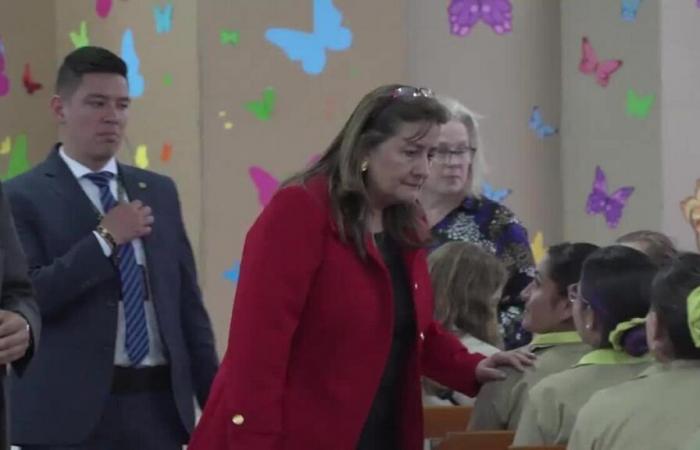About 99 women imprisoned in Colombia for minor crimes linked to drugs have been released to purge their sentences out of prison under a law of the Gustavo Petro government, the Ministry of Justice reported.
The leftist president sanctioned this regulation in 2023 for heads and low -income mothers, who seeks to decongest prisons and change the anti -drug war focus that considers a “failure.”
The beneficiaries must be authorized by a judge and do social work in exchange for their penalties for traffic, in the country that produces the most cocaine of the world.
“One of the most important projects that Colombia has is the intention of protecting the women’s head of the family,” said the Minister of Justice, Ángela María Buitrago on Tuesday, in an event in the El Buen Pastor de Bogotá prison before dozens of dams.
According to the Inter -American Commission on Human Rights, the main cause of detention of women in America are drug -related crimes.
In Colombia, 13% of the prison population are women.
This “restorative approach” with a gender perspective was thought to repair women who committed crimes in contexts of macho poverty or violence, according to the government.
But accessing this measure is difficult. Of the 2,697 candidates, only about 100 are free.
Diana Carolina Plata left prison a month ago after five years and ensures that her children did not recognize her.
-A judge “told me that my case did not work” for deciding to “go off” instead of “staying with my children,” he tells AFP in tears. Silver was imprisoned for selling four pounds of marijuana pushed by “extreme poverty.”
Although the law was created for drug -related crimes, it now extends to minor thefts and convictions that do not exceed eight years.
A 19 -year dam who asked to keep his identity under reserve was arrested after stealing a bag and hopes to apply.
“It’s very angry because I regret,” he says. He has no children, but is a provider of his family.
Those who leave prison are concerned to find work and survive outside.
“They have to provide social service and take care of their families (…) There are no job opportunities,” Claudia Alejandra Cardona, director of the Free Women’s Association, told AFP, which is necessary to address the vulnerability that led them to commit crimes.
Human Rights Defense Organizations denounce poor food, overcrowding and lack of guarantees of sexual and reproductive rights in prisons.
79% of women arrested in 2019 for drug trafficking or similar crimes in Colombia had between one and five children, according to a report by the UN office against drugs and crime.
als/lv/vd/atm






